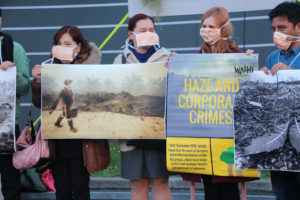CORPORATE CRIMES

According to Australian criminologist John Braithwaite, corporate crime is defined as, “the conduct of corporation or employees acting on behalf of a corporation, which is prescribed and punishable by law.” It is also known as white collar crime or organizational crime since the individuals commit crimes for the benefit of the organization.
They make crime their sole livelihood and get identified with crime; however, they are not considered criminals especially since they are becoming the necessary evils today. Neither can the society survive with them nor without them?
Corporate crimes have certain identifiable features; they are characterized by low visibility, they are not easy to detect because they are performed in such a way that nobody gets to know the structure of action and communication, also the legal framework is maintained. Another feature is the distance between the offender and the victim.
There are no individuals committing these crimes rather, it refers to a group of individuals, other corporations, agencies or society as a whole. It is owing to this that they do not get revealed easily. Only law enforcement agencies inquiring or investigating can get hold of these crimes.
Corporate crime has been considered the time and again to be the greater version to white collar jobs as it involves crimes performed by the higher class of our society. The concept of corporate crimes and white collar crimes overlap with each other. One of it is crimes committed by individuals who are in the decision making the level of corporate sectors against their workers, society or the environment and the other is crimes done for their own benefit.
Certain types of corporate crimes can be insider trading, embezzlement, money laundering, forgery, bribing, etc.
Corporate crime also has a huge effect on one’s social and economic lives. It ranges from affecting mind and body to property and environment. The victims report bitterness, health problems, depression, and anger. They feel a breach of trust and even lose their jobs due to these crimes. As to affecting the economy, it destroys the investor’s trust and confidence. Therefore the growth of the economy gets disrupted. The good money gets driven away by the bad money slowly.
As corporate crimes are difficult to prevent or deter, especially because they are performed by the elite class of well-educated people of our society they are considered as more threat to our society than the local street crime like theft, burglary, etc.
Much of our lives are affected by corporate activities. In the face of ever-increasing privatization, the employees eat, drink and survive on what the companies provide.
Thus with great power comes great responsibility. Yet, nowadays a lot of corporate crimes come into light. Though they are performed in the quiet environment for the benefit of the company yet they sometimes affect adversely. Crimes exist because these crimes pay higher. If there would have been harder punishments instead of covering them up, probably the scenario would have changed.
There are many regularity authorities who look into the crimes like Central Bureau of Investigation (CBI), Central Vigilance Commission, Serious Fraud Investigation Office, Directorate of Enforcement (DOE), etc. Yet I feel increasing public awareness, putting into force special sophisticated investigating agencies, having separate commissions for punishments, charging high fines, strengthening internal policies, etc., would be certain immediate measures which should be taken.
